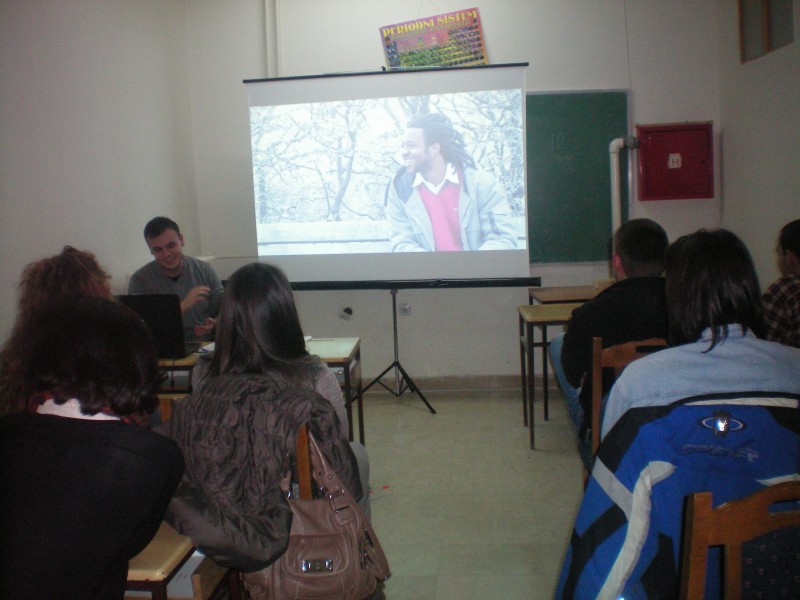 I decided to hold mine peer to peer education in a local centre for children and youth called Duga located in Novi Pazar. Peer to peer was held on Saturday 2nd of March 2013. I expected 15-20 people to come, but unfortunately only 11 of them has come to the lecture.
I decided to hold mine peer to peer education in a local centre for children and youth called Duga located in Novi Pazar. Peer to peer was held on Saturday 2nd of March 2013. I expected 15-20 people to come, but unfortunately only 11 of them has come to the lecture.
Nevertheless, I held the lecture and tried to transfer at least one per cent of the knowledge I obtained during YRA project in Belgrade. Subject of mine lecture was adjusted to the local situation in a sense that my focus wasn’t on the reconciliation process, but on cooperation and mutual understanding in multicultural communities. Subject of the lecture was Ethnical prejudices and stereotypes, discrimination and genocide. Though a wide topic, I’ve tried to transfer as much as about, in one hour, during the lecture.
At first, I’ve tried to explain the concepts of prejudices and stereotypes. With interesting and facts that are used on daily bases, the group has opened a debate on stereotypes and prejudices, their meanings, similarities and differences.
After that we came to the second part of the lecture, which was about how do stereotyping and prejudices create discrimination and at the unfortunate end – genocide. The group which consisted of young people of different ethnical backgrounds has shown high level of critical thinking and understanding of these issues.
At the end of lecture, I have given out hand-outs to the group with the questionnaire, which is used in real polls to determine a level of ethnical distance in a society.


